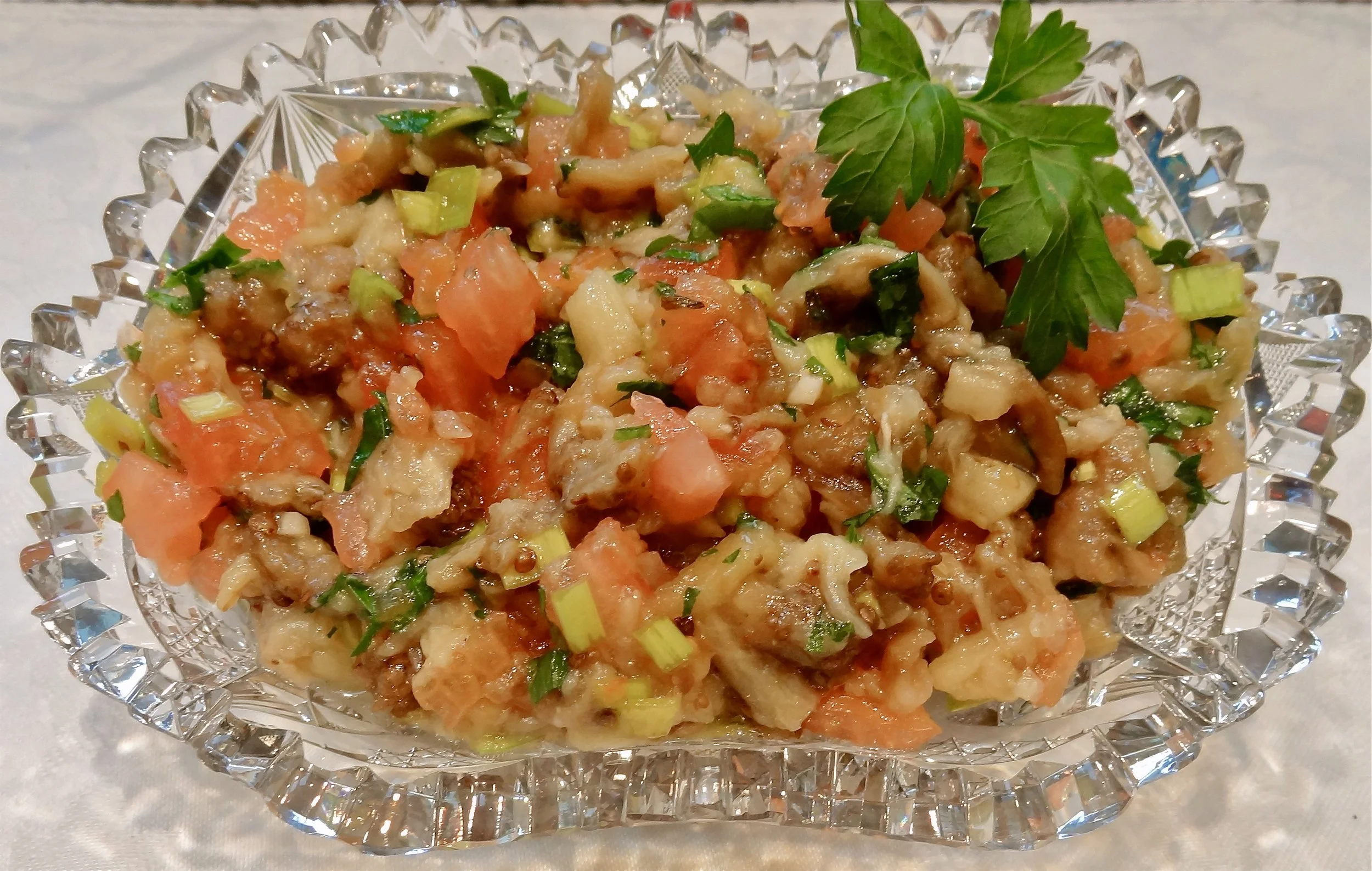Styles and tastes change from time to time and modern couples may have their own notions about which rituals and traditions to keep as they exchange vows, but I think all weddings, whether they are extravaganzas for 500 people or intimate gatherings for immediate family have this in common: when everyone goes home it’s only the memories that remain. And maybe some photos or video.
The stress over stuff like what music should be played as people walk down the aisle, the color of the bridesmaids’ nailpolish or whether to serve a vegetarian or meat meal are all things past and best forgotten.
So the memories should be good ones. Which is what I am wishing today for an internet colleague of mine, Alison Barnett, a chef and food blogger who was married yesterday.
I am gathered “here” with several other colleagues to wish the bride and groom mazal tov and feature a recipe for them as if we were celebrating a sheva berachot (seven blessings) with them.
A virtual simcha.
I chose this eggplant dish because it brought to mind a wedding feast from long ago. Centuries ago. 9th century to be exact. When the Caliph of Baghdad married a young woman named Burana. Their little fete lasted over 2 weeks and cost a sultan’s ransom.
They chose eggplant for the wedding dinner, because although almost everyone at the time hated eggplant and thought it was too bitter (a Bedouin once said it tasted like a scorpion’s sting), the chef figured out that by salting the vegetable first, eggplant would be tender and tasty and not bitter at all.
After this, eggplant’s fame spread far and wide. It was certainly a watershed moment for Middle Eastern cuisine, which uses lots and lots of this particular vegetable. In fact, at one time, a woman’s prospects for marriage increased in proportion to the number of eggplant dishes she could cook.
Well of course that’s not the case today.
I hope.
In any event, Alison knows how to cook eggplant (and everything else too).
But to celebrate Alison and Matan’s wedding, I offer a sumptuous eggplant dish: Raheb, a salad to precede a meal or serve alongside meat or dairy. The Caliph’s chef might have pricked the whole eggplant with a fork and soaked the vegetable in salted water before roasting it, but that actually isn’t necessary. There is nothing bitter about this dish.
Raheb Salad
1 large eggplant
2 medium tomatoes, peeled, deseeded and diced
2 medium cloves garlic, finely chopped
2-3 scallions, chopped, or one small onion, chopped
2-3 tablespoons olive oil
2-3 lemon juice
3 tablespoons chopped fresh parsley or cilantro
salt and freshly ground black pepper to taste
1/2 teaspoon zatar, optional
Preheat the oven to 450 degrees. Place the eggplant on a cookie sheet, pierce the flesh in 3-4 places with the tines of a fork and roast, turning the eggplant occasionally, until tender and browned on all sides, for 25-30 minutes. Let cool and peel off the skin. (Or cook it on a gas burner or inside an outdoor grill.) Chop the flesh into small dice into a bowl. Add the tomatoes, garlic, scallions, olive oil, lemon juice, parsley, salt, pepper and zatar, if used. Stir gently to distribute the ingredients evenly.
Makes 1-1/2 cups

